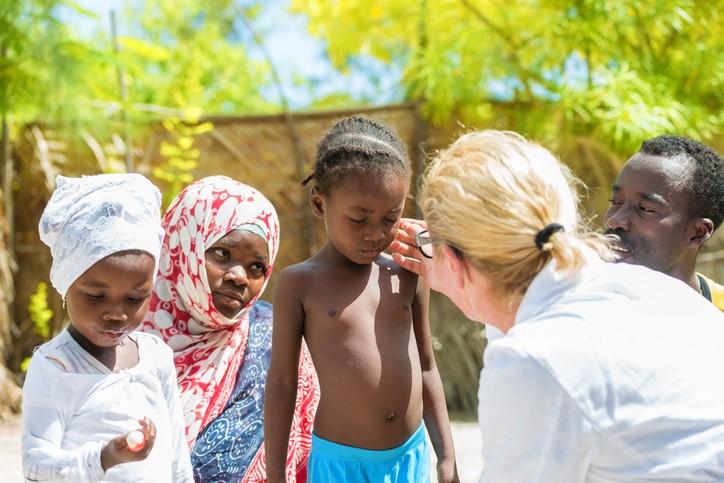
Analysis of data from a randomized clinical trial in Kenya suggests that the presence of a macrolide resistance gene in the gut microbiome may reduce the efficacy of empiric azithromycin in children discharged from the hospital, researchers reported yesterday in the Journal of Infectious Diseases.
The Toto Bora trial (June 2016 to November 2019) tested whether a 5-day course of azithromycin reduced the risk of re-hospitalization or death in the 6 months following hospitalization in Kenyan children ages 5 and under compared with placebo. Despite evidence from other trials suggesting azithromycin may reduce childhood mortality in high-mortality settings in sub-Saharan Africa, the trial found no evidence of benefit.
Hypothesizing that the results may be tied to the presence of macrolide resistance genes in the gut microbiome, a team of researchers from Kenya and the United States analyzed DNA from fecal samples of children enrolled in the trial. Their aim was to determine whether the presence of macrolide resistance genes was associated with increased risk of re-hospitalization or death.
Gene could explain differences in treatment effect
Among 1,394 children enrolled in the trial (699 in the azithromycin group and 696 in the placebo group), 94.7% had at least one macrolide resistance–conferring gene detected, and macrolide-resistance gene carriage distribution was equal across both arms. The Mef(A) gene was found in 23.7% of children and was the only macrolide-resistance gene that modified azithromycin's effect on re-hospitalization or death.
In children without the Mef(A) gene, azithromycin reduced the hazard of rehospitalization or death by a third (hazard ratio [HR], 0.66; 95% confidence interval [CI], 0.45 to 0.99). But among children with the Mef(A) gene, there was a nearly three-fold higher risk in those randomized to azithromycin (HR, 2.72; 95% CI, 1.21 to 6.09). No major differences were observed in azithromycin's effect across other macrolide-resistance genes.
"Our study is the first to systematically evaluate the potentially modifiable effect of macrolide resistance gene carriage on the efficacy of azithromycin for post-hospital re-hospitalization and mortality," the study authors wrote. "If confirmed, this finding could explain sources of variability in treatment effects in empiric azithromycin trials targeting children at high risk of mortality."

















